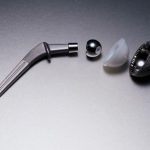
Wildfires are known to have a lot of negative impacts on the environment and the health of the people who live through them. Yet another is the worsening of skin conditions, according to the American Academy of Dermatology (AAD). The group shared strategies to minimize the effect air pollution can have on people’s skin during its annual meeting, held this past weekend in New Orleans. “The health impact of air pollution from wildfires has not been well studied, but the evidence from our recent studies suggests that short-term exposure to wildfire air pollution can affect the skin and cause flares of certain skin disorders,” said Dr. Maria Wei, a professor of dermatology at the University of California, San Francisco. “We found that the air pollution from California wildfires were associated with an increase in patient visits to dermatologists for both eczema and psoriasis,” Wei added in an AAD news release. “These results are consistent with studies indicating that air pollution from wildfires can be more toxic than air pollution caused by traditional industrial and traffic sources.” Psoriasis happens when the body makes skin cells too quickly, causing them to pile up and form patches on the skin. Eczema is inflamed, itchy, irritated skin. People with the skin condition eczema were more likely to visit dermatologists during the wildfires. Those with psoriasis were more likely to… read on > read on >
























-300x200.jpg)













